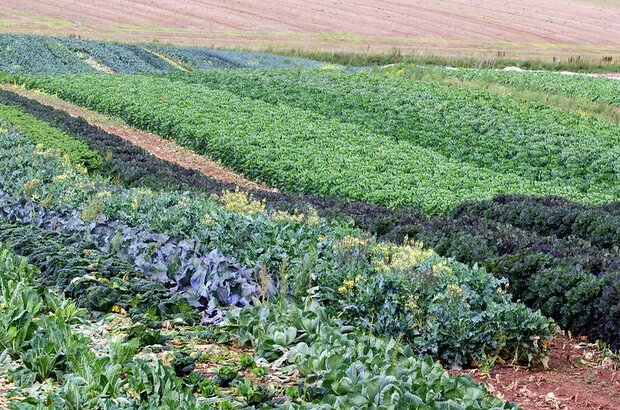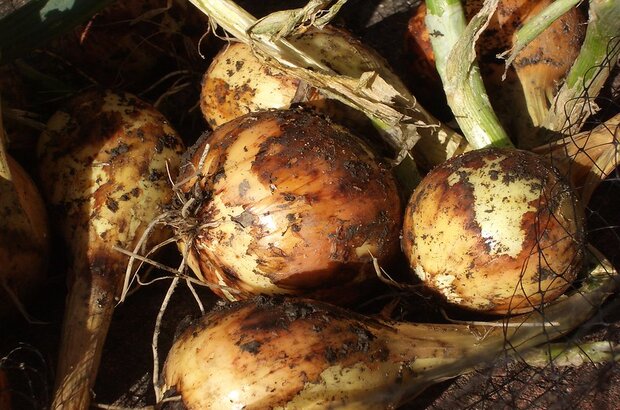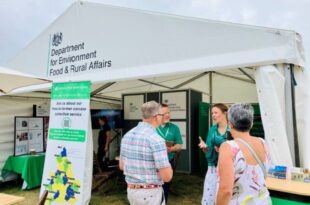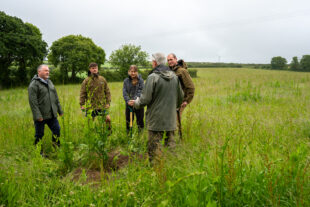
Domestic food production is vital to national resilience, but it can be impacted by a range of factors.
From the weather to geopolitical tensions, pests to water scarcity, ensuring a continued supply of nutritious food is hugely important.
So, if you have an ambitious research and development project which supports productivity and sustainability in the sector, you can apply for a share of £12.5 million to fund it.
In this post, I’ll share an overview.
I’ll also shine a light on some of the exciting projects to receive support through previous rounds of innovation funding.
Overview
Through the Farming Futures competition, which is part of the Farming Innovation Programme, we want to target one or more of the following 3 industry subsectors:
- livestock
- plants
- bioeconomy and agroforestry
The competition addresses the challenges to plants, crops and farmed animals, from both their biological (biotic) and physical environments (abiotic).
Biotic stresses can include pests, weeds, destructive fungi and grazing herbivores.
Abiotic stresses can include extreme temperatures, flooding, drought and water toxicity.
The competition will support ways to manage these challenges. Meaning food production that is more resilient and/or has a lower environmental impact.
We want to fund collaborative projects with ambitious solutions. These projects will align with the Genetic Technology (Precision Breeding) Act 2023 and the government’s food strategy.
Competition structure
The Farming Futures competition is split into 2 strands.
- Strand 1: Farming Futures: Feasibility
Evaluating emerging solutions. These projects cost between £200,000 and £500,000. They will last 12 to 24 months.
- Strand 2: Farming Futures: Industrial Research
Progressing emerging solutions to new products, processes and services. These projects cost between £500,000 and £1 million. They will last 24 to 36 months. Breeding projects will last up to 60 months.
You can apply now using the links above.
The deadline is 19 July 2023.
Learn more
Innovate UK KTN will host a competition Q&A and consortium building event on 8 June at 10:00 am. Register to attend.
Together with UK Research and Innovation (UKRI), we recorded a briefing about the competition. Watch the session.
Innovating with chickpeas, onions and fungal strains
I’m pleased to share a few successful applicant projects within the 4 previous competition streams.
These include projects from the first 2 competition rounds in which government set the challenge: climate-smart farming and sustainable farm-based protein production, as well as those identified by the industry.
These projects include:
-
From the Feasibility competition (round 2)
Project: Novel dual-action biopesticide for wheat
This project aims to identify fungal strains that act against both insect and fungal pests and will build on existing ones to develop novel biofungicides, by developing a dual-action biofungicide and bioinsecticide to target pests and diseases in UK cereals.
-
From the Research Starter competition (round 2)
Project: Extracting value from onion waste - Evaluation of pyrolysis (gasification) to improve the sustainability of onion production and reduce costs on the journey to net zero
This project will establish if pyrolysis can add value to the onion waste and/or reduce costs associated with waste disposal.
-
From the Climate Smart Farming competition
Project: Climate Smart Beef Genetics - Innovative approaches to reduce the environmental impact of the UK beef supply chain
This project will look at methane reduction from the beef sector through innovative ruminal microbiome-driven breeding.
-
From the on-farm sustainable proteins competition
Project: Cicero - Developing chickpeas as a novel source of domestic protein
At the heart of 'Cicero' is an agronomy and variety screening programme which identifies how to maximise performance from the best available chickpea varieties for UK growers and end-users.
UKRI published the full list of projects today, so do take a look.





Leave a comment